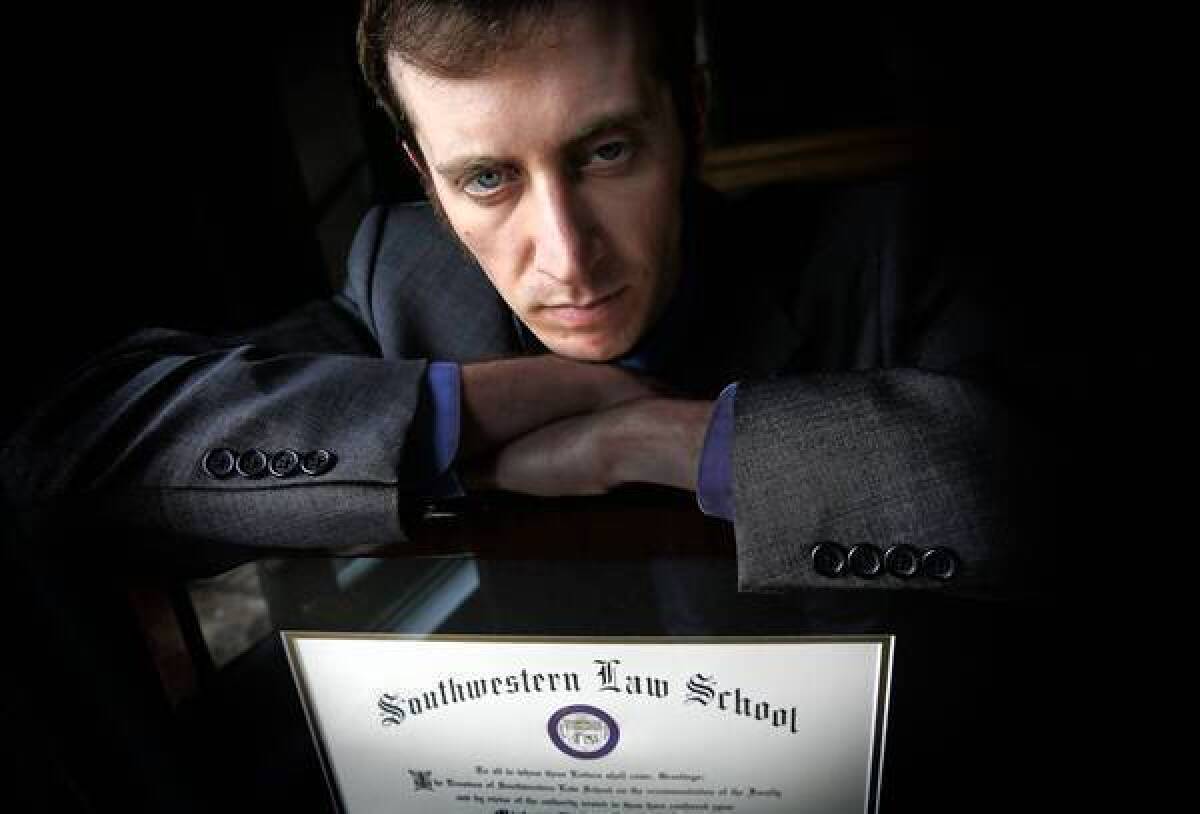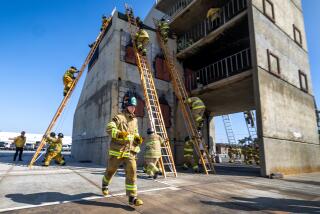Class action: Law school grads claim misleading reports of success

SAN FRANCISCO -- Dozens of law graduates across the nation have joined class-action lawsuits alleging that law schools lured them in with misleading reports of their graduates’ success.
Instead of working in the law, some of the graduates were toiling at hourly jobs in department stores and restaurants and struggling to pay back more than $100,000 in loans used to finance their education. Others were in temporary or part-time legal positions.
Michael D. Lieberman decided to enroll at Southwestern Law School after reading that 97% of its graduates were employed within nine months. He graduated in 2009, passed the bar on his first try but could not find a job as a lawyer. He worked for a while as a software tester, then a technical writer, and now serves as a field representative for an elected official.
Lieberman, who earned his undergraduate degree at UC San Diego, believes his law degree may still be a “useful tool,” but he and other graduates said a suit they filed was intended to combat “systemic, ongoing fraud prevalent in the legal education industry” that could “leave a generation of law students in dire financial straits,” according to the complaint.
Nearly 20 lawsuits — five of them against California schools — are being litigated at a time of dim employment prospects for lawyers. Much of the work once done by lawyers can now be done more quickly by computers.
Online services have made law libraries largely unnecessary, allowing corporations to do more work in-house. Software has sped the hunt for information needed in discovery and other legal tasks, and Web-based companies offer litigants legal documents and help in filling them out. Even after the economy improves, some experts believe the supply of lawyers will outstrip jobs for years to come.
Although lawyer gluts come and go, “I don’t think any of them rival the situation we are seeing today,” said Joseph Dunn, chief executive of the State Bar of California, which regulates the state’s 230,000 attorneys. “The legal community in all 50 states is being dramatically impacted.”
New and inexperienced lawyers, unable to find jobs at law firms, are opening private practices, potentially putting clients at risk, according to a California bar report issued in February. To confront “serious issues of public protection,” a bar task force has recommended requiring practical experience as a condition of a license. The California Supreme Court would eventually have to approve the new rules.
Besides Southwestern, alumni have sued San Francisco’s Golden Gate University, the University of San Francisco and San Diego’s Thomas Jefferson and California Western schools of law. Each school charges about $40,000 a year in tuition.
But not everyone shares the dismal outlook. Erwin Chemerinsky, dean of UC Irvine Law School, said his students are finding full-time jobs as lawyers even during this slow economy.
“It is not the same across all law schools when you look at employment prospects,” he said.
Rudy Hasl, dean of the Thomas Jefferson School of Law, said the retirement of baby boomers also would open up jobs.
Both deans said there was huge unmet demand for legal services for the poor and middle class, and the next generation of practitioners might be able to fill that demand. The state bar agrees.
“Across the country, the need for legal services among those who cannot pay or have limited ability to pay has never been higher,” the bar report said.
ALSO:
Stockton bankruptcy clears way for CalPERS pension fight
Cesar Chavez Google doodle flap: Conservatives fight back
Vigil held for L.A. teen who was among 5 killed near Las Vegas
maura.dolan@latimes.com
More to Read
Sign up for Essential California
The most important California stories and recommendations in your inbox every morning.
You may occasionally receive promotional content from the Los Angeles Times.











